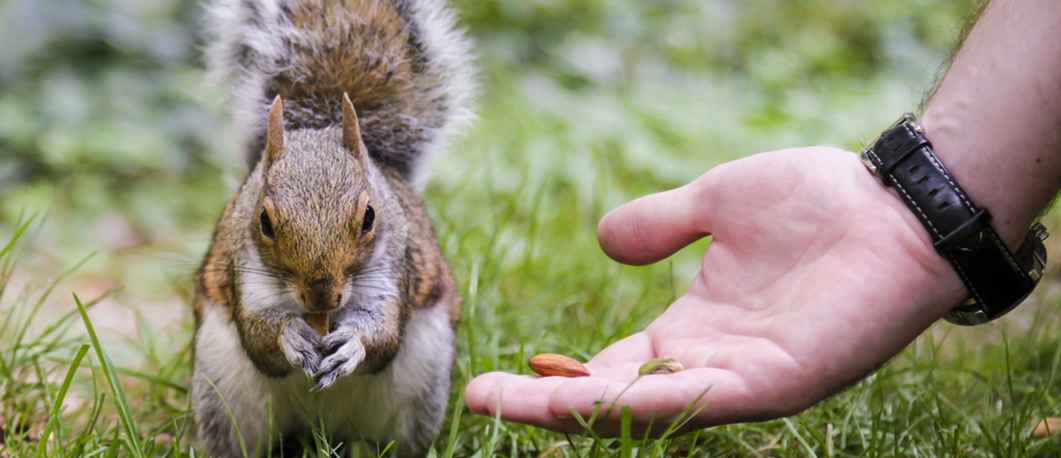Zoologist/Wildlife Scientist
Who Is A Zoologist / Wildlife Scientist?
Ever wondered what zoologists/wildlife scientists do? They study wildlife for various purposes. They analyse animal behaviours, habitat and many other factors. They watch animals interact with their ecosystems, both in the wilderness and in captivity. They also study the impact that humans have on wildlife.
Some zoologists conduct experiments in natural and controlled surroundings. Others study the physiology of dead animals. Some are also involved in conservation. A lot of zoologists write and discuss their results and report their research. They help government agencies and other organisations protect wildlife.
Once you’ve spent a couple of years in the field, you could also choose a specialisation. For instance, zoologists studying mammals are called mammalogists, those studying birds are called ornithologists, and so on.
Sounds like something you’d love to do? Read on to know how you can do it!
Roles & Responsibilities
Studying animals carefully in their natural surroundings. Say you’re conducting an on-field research about the lions in Gir, Gujarat. You would visit the area, observe the lions in their surroundings from a safe distance and record your findings.
Understanding animal health, diseases, life cycles, genetics and more. This type of investigation happens in laboratories once you have collected on-field data. Testing will reveal detailed traits about the animal you’re studying.
Analysing animals to classify them in the right species. Certain characteristics are used to help categorise animals into different sets and subsets of species. Your observations will help highlight these characteristics and classify them correctly.
Preparing and studying preserved and new animal specimens under a microscope. You might have to study extinct animals as well as new ones.
Maintaining an inventory of different species and their effect on each other. You will record all data derived from the studies for future reference.
Implementing preventive programmes to control wildlife diseases. For example, you would monitor and control the Ebola virus outbreak since that is how it first spread among humans.
Suggesting the best management and planning systems to authorities. Say you’re observing bears in a national park. You would be the one who recommends increasing the size of their enclosure so they have enough space to move around.
Sharing your results via scientific journals and educational presentations. You may have to share your learnings with colleagues and experts in your field. It is important to document your findings well and publish them among your peers.
Contributing towards wildlife conservation by keeping the public informed. Based on your findings, you can help people understand which species are endangered, which ones are close to extinction and what people can do to conserve that particular species.
Take the Mentoria career assessment, to find out how well-suited you are as a Zoologist / Wildlife Scientist.
Discover your Ideal future
Get expert guidance and mentorship towards your perfect fit.
What Skills Will I Need To Have To Do This Job Well?
As exciting as this sounds, there are some things you’ll need to learn to do the job right:
SCIENTIFIC KNOWLEDGE
A sound knowledge of biology, environmental science and other branches of science will help you work in this specialised field. You need to research, observe, plan and execute, so it’s crucial to know exactly what you’re dealing with.
CRITICAL THINKING
You should be able to critically analyse your study and data to arrive at a result. You must be able to understand and find solutions to complex problems. Say you’re studying the decreasing deer population in an area. Critical thinking will help you comb through the data, figure out the problem areas and suggest suitable solutions.
ACTIVE LEARNING
This is a field where new discoveries and findings happen every day. You need to be an active learner and stay updated on the latest developments. Subscribe to newsletters and magazines from various thought leaders in the industry. Read the latest scientific journals and other published work.
WRITING SKILLS
A lot of your work as a zoologist/wildlife scientist includes writing. All your results and theories must be recorded in detail. This helps with future referencing. You will also need to write reports, studies, articles in scientific journals and more.
TECHNOLOGICAL SKILLS
As a part of the science and technology community, you should be tech savvy. You might have to use advanced equipment and software as a part of your work. You need to be able to use technology correctly to derive accurate results. Whether it is MS Office or complex scientific software, it is important to make the best use of technology.
What Will My Workplace Look Like?
Zoologists/wildlife scientists don’t just have desk jobs. As a zoologist, you would get to work in offices, laboratories or outdoors. You may conduct research on the field or in laboratories. Field work would involve observing animals in their natural or controlled environment. You may work in offices to record and analyse all your data.
The best part about this job? You get to travel! You may have to study the King Penguins in Antarctica or the African elephants in Kenya. You may have to stay in remote locations for an extended time.
What Is My Scope For Career Growth As A Zoologist / Wildlife Scientist?
Zoologists/wildlife scientists need at least a bachelor’s degree for entry-level positions. Depending on your further qualifications or experience, you can go on to work at senior levels. You could work at zoos, non-profit organisations or museums. You could also work with environmental consulting firms and government agencies.
Some of the popular job titles in these fields include wildlife educator and researcher. You could also become an environmental consultant, where you will help an organisation comply with environmental regulations.
If you are pursuing a Ph.D., you can also conduct research. This would depend on the university or agency responsible for your grants. Zoologists/wildlife scientists also work a lot in the academic field. You could work as a professor or the head of department there.
Thinking of a career as a Zoologist / Wildlife Scientist? Take the Mentoria assessment & talk to our career counsellors to get personalized step-by-step guidance for your future career path.
How Much Will I Get Paid?
The exact number will depend on where you’re working, your education, skill-set and internship experience. But we can give you a general idea.
As a zoologist/wildlife scientist in India, you can earn anywhere between INR 3,00,000 and INR 5,00,000 initially. Your reputation and experience will significantly impact your appraisals, as will your research findings.
Okay, I'm sold. This is amazing

STEP 1: Class XI-XII/Junior College
Go to high school or junior college. Study subjects like Biology, Chemistry, Mathematics and, if possible, Environmental Science.

STEP 2: Entrance Exams
You might have to appear for entrance exams to apply to various degree colleges. This depends on which graduate or postgraduate course you opt for.

STEP 3: Graduation
You could pursue a B.Sc. in Wildlife or Zoology/Applied Zoology. You could also do a typical veterinarian degree and then pursue a Master’s degree in Wildlife or Zoology.

STEP 4: Internship
There is nothing as valuable as practical experience. An internship can also be your chance to do some on-field work. You can intern at local zoos, aquariums or even non-profit organisations. You could also try for internships at a wildlife conservatory or a national park.

STEP 5: Land a Job
You now have a degree and good internship experience. You are ready for a job! Your first job should be a great learning experience. It should give you enough scope to try different things. Most jobs in this field are with government agencies like the Department of Wildlife and Fisheries Sciences or the Zoological Survey of India. You will be posted at various national parks, zoos or wildlife preserves.
Congratulations, you are now officially a zoologist/wildlife scientist!

STEP 6: Post-graduation
You can pursue a postgraduate degree to update your knowledge. It can also help better your job prospects. You can do your post-graduation in Zoology/Applied Zoology, Wildlife Studies or Wildlife Conservation.
Sign Up for Mentoria - India’s Most Reliable Career Discovery Platform
Mentoria promises to handhold you during your career discovery journey - from the time you sign up until you get into a career you love.
Discover your Ideal future
Get expert guidance and mentorship towards your perfect fit.

